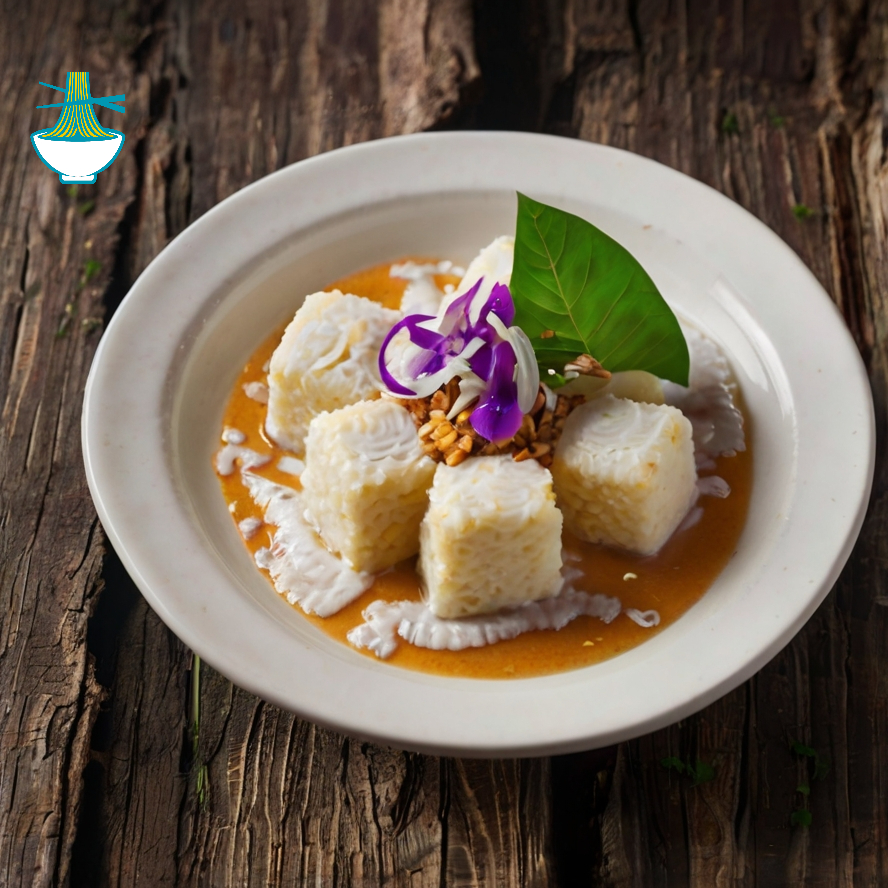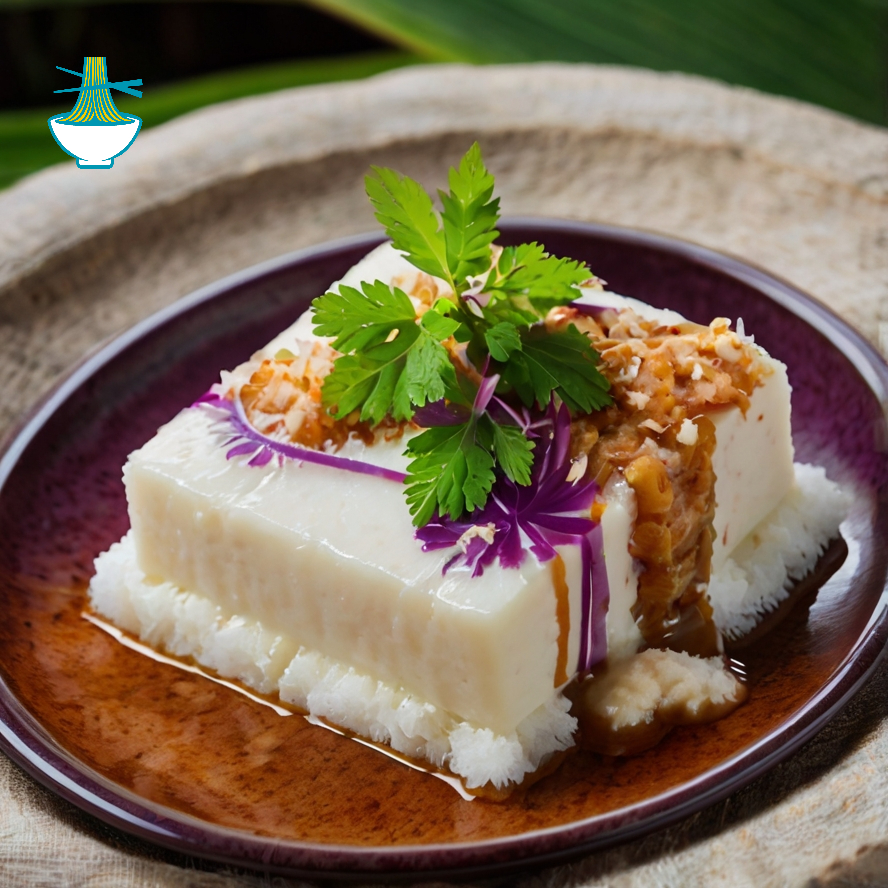Discover the rich flavors of Laplap, a traditional dish made from grated taro or cassava, wrapped in banana leaves, and baked to perfection with creamy coconut. This delicious and aromatic recipe is a staple in many Pacific cuisines and offers a delightful blend of earthy taro or cassava and sweet, rich coconut cream. Perfect for special occasions or as a comforting meal, Laplap is a unique and flavorful way to enjoy these classic ingredients.
Ingredients:
- 2 cups grated taro or cassava
- 1 cup coconut cream
- 1/2 teaspoon salt
- 1/4 teaspoon black pepper
- 2 tablespoons sugar (optional, adjust to taste)
- Banana leaves (enough to wrap the dish)
Instructions:
Prepare the Banana Leaves:
- If using fresh banana leaves, carefully wipe them clean and cut into large squares. To make them more pliable, pass them over an open flame or blanch them in hot water for a few seconds. Set aside.
Prepare the Mixture:
- In a large bowl, combine the grated taro or cassava with the coconut cream, salt, pepper, and sugar if using. Mix well until all ingredients are thoroughly combined.
Wrap the Mixture:
- Place a portion of the mixture onto the center of a banana leaf square. Fold the leaf over the mixture to form a parcel, securing the edges to ensure the mixture is well-wrapped. Repeat with the remaining mixture and banana leaves.
Bake:
- Preheat your oven to 350°F (175°C). Arrange the wrapped parcels on a baking sheet and bake for 45-60 minutes, or until the taro or cassava is tender and fully cooked.
Serve:
- Allow the parcels to cool slightly before unwrapping. Serve warm and enjoy the delicious blend of taro or cassava with creamy coconut.
Notes:
- If you don't have access to banana leaves, you can use parchment paper as an alternative.
- Adjust the sweetness and seasoning according to your preference.
Enjoy your homemade Laplap—a delightful, traditional dish that brings a taste of the tropics to your table!
Nutritional values
Taro or Cassava (2 cups grated)
- Calories: About 220-250 kcal
- Carbohydrates: 55-60 grams
- Protein: 2-4 grams
- Fat: 0.5-1 gram
- Fiber: 6-8 grams
Benefits:
- Taro: Rich in dietary fiber, which aids digestion and helps maintain a healthy gut. Contains potassium, which supports heart health and helps manage blood pressure. Taro is also a good source of vitamins C and E, which are antioxidants that support immune function and skin health.
- Cassava: Provides a good amount of energy due to its high carbohydrate content. It's also a good source of dietary fiber and vitamin C. Cassava contains small amounts of calcium and iron, which are essential for bone health and oxygen transport, respectively.
Coconut Cream (1 cup)
- Calories: About 445 kcal
- Carbohydrates: 6 grams
- Protein: 4 grams
- Fat: 48 grams (mostly saturated fat)
Benefits:
- Rich in healthy fats: Provides medium-chain triglycerides (MCTs), which can be easily used for energy and may support brain health.
- Vitamins and minerals: Contains iron, potassium, and magnesium. These nutrients support various bodily functions including heart health, muscle function, and bone health.
- Antioxidants: Coconut cream has antioxidant properties that help protect the body from oxidative stress.
Salt (1/2 teaspoon)
- Sodium: About 1,150 mg
Benefits:
- Essential mineral: Sodium is vital for maintaining fluid balance, nerve function, and muscle contraction. However, it should be consumed in moderation to avoid high blood pressure and other health issues.
Black Pepper (1/4 teaspoon)
- Calories: About 6 kcal
- Carbohydrates: 1.5 grams
- Protein: 0.2 grams
- Fat: 0.1 grams
Benefits:
- Digestive health: Black pepper stimulates the production of digestive enzymes and can enhance nutrient absorption.
- Antioxidants: Contains piperine, which has antioxidant properties and may help protect against certain diseases.
- Anti-inflammatory: May have anti-inflammatory effects, potentially benefiting overall health.
Sugar (2 tablespoons, optional)
- Calories: About 96 kcal
- Carbohydrates: 25 grams
- Protein: 0 grams
- Fat: 0 grams
Benefits:
- Flavor enhancement: Adds sweetness to dishes and can enhance the overall flavor. However, excessive consumption should be avoided due to its impact on blood sugar levels and overall health.
Banana Leaves (for wrapping)
- Calories: Negligible
- Carbohydrates: Negligible
- Protein: Negligible
- Fat: Negligible
Benefits:
- Natural wrapping: Used for cooking, banana leaves impart a subtle flavor to dishes and can help retain moisture. They are also a traditional and eco-friendly alternative to aluminum foil.
These ingredients together create a flavorful and nutritious dish, with each contributing unique health benefits.


Comments